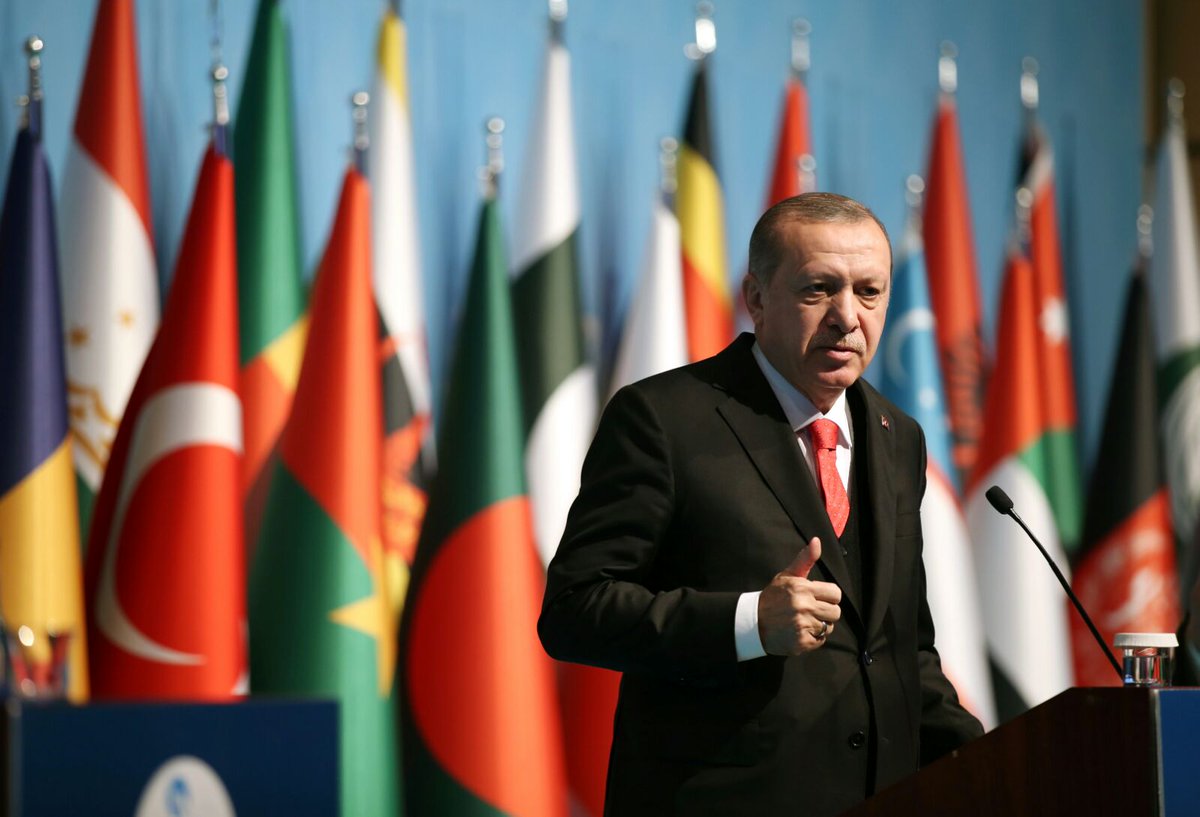Though a Bold Step, OIC Communique Means Little in Reality
Turkey’s President Recep Tayyip Erdogan sealed another surprise diplomatic victory after spearheading an Organization for Islamic Cooperation (OIC) summit to forge an accord, recognizing “East Jerusalem as the occupied capital of Palestinian State.”
In an emergency meeting of OIC, Muslim world leaders took a symbolic step in a snub to the U.S. and Israel after President Donald J. Trump unilaterally recognized Jerusalem as Israel’s capital.
His decision rattled the Islamic world, exposed broad-line of disagreement between the EU and the U.S. over the contentious status of Jerusalem and saddled the U.S. mission to broker a solution to the elusive Palestinian-Israeli conflict with daunting challenges in the future.
But what does OIC recognition of an independent Palestinian state mean? Does it have any real impact on the current world of international relations or over American decision?
“The OIC communique means less than nothing. It is mere rhetoric; for zero plus zero plus zero will always be equal to zero,” Mohammed Ayoob, a distinguished professor of International Relations at Michigan State University, told Turkey Post.
His brutal realism reveals a deep skepticism over the OIC communique and its impact in the real world.
OIC has suffered from internal squabbles and ongoing sectarian divide across the Islamic world. The split within Gulf countries, the regional geopolitical rivalry between Iran and Saudi Arabia, the wars in Yemen, Iraq and Syria have all exposed the limits of its problem-solving capacity.
Still, Jerusalem crisis created a windfall for President Erdogan at a time of crises at home and abroad.
Turkey is mulling to open an embassy in East Jerusalem, Turkish Foreign Minister Mevlut Cavusoglu said on Thursday, once an independent Palestinian state is recognized by the whole world.
His carefully-scripted remarks contained an element of veiled admission of the realities of international politics.
On Friday, President Erdogan even went further and said Turkey would try to annul Mr. Trump’s decision at the United Nations Security Council. If blocked there, given the veto-wielding power of the U.S., then Turkey may try its bid at the General Assembly, the president told his party members.
“Turkey has lost its clout in the Arab street in the past few years, especially after its turn to Russia and Iran,” Mustafa Gurbuz, a non-resident policy analyst at Arab Center Washington and an adjunct professor at American University, said in remarks to Turkey Post.
“Trump’s blunder on Jerusalem,” he said, “provided Erdogan an opportunity to redress for Turkey’s relations with the Arab world.”
And yet, he cautioned, how Turkey could further capitalize on the Palestinian issue is dubious.
To him, there is a diverse set of factors other than just Palestinian issue at play when understanding Mr. Erdogan’s passionate embrace of the Palestinian cause.
Domestic troubles push the Turkish leader to divert public attention from troubling revelations from a case in the U.S.
“Erdogan claims that the ongoing case in the New York court (which holds Turkish banks accountable for evading Iran sanctions) is politically motivated,” Mr. Gurbuz noted.
With hosting such a critical summit, he argued, President Erdogan has effectively boosted his image.
“Even if the New York court case would reveal Erdogan’s personal involvement in the massive corruption scandal,” he said with a caveat, “there will be many people in the Arab world who would believe Erdogan’s narrative about the US-led plot against his government.”
In an ongoing trial in New York, Turkish-Iranian gold trader Reza Zarrab, a former Erdogan ally, became a witness in the court and implicated the president in his gold-for-oil arrangement on behalf of Iran to circumvent U.S. sanctions against Iran.
Mr. Erdogan portrays the case as a plot against Turkey. As the revelations from testimonies at the court had nerve-racking ramifications for Turkey’s embattled leader, the Jerusalem dispute provided a timely lifeline.
As Mr. Gurbuz noted, OIC communique perfectly served his domestic agenda and polished his image as the champion of Palestinians.




Comments are closed.